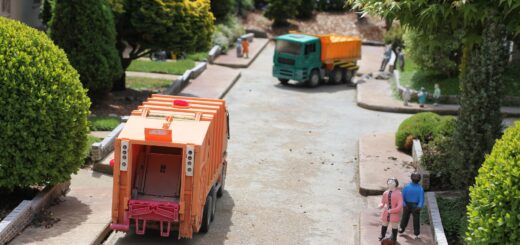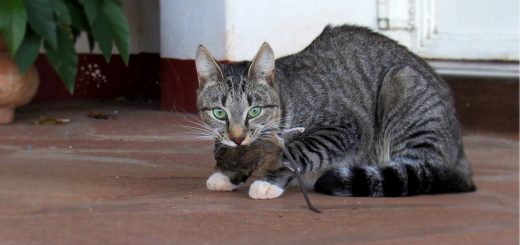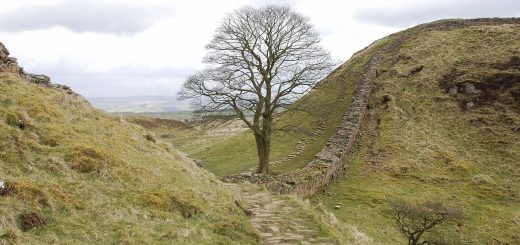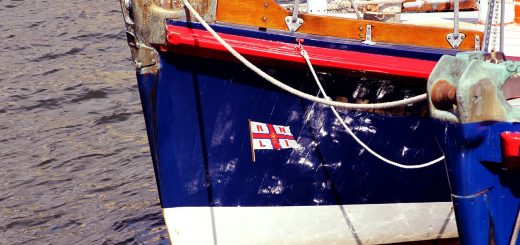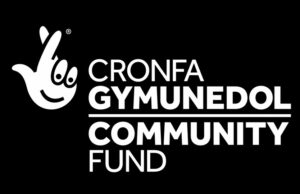The Wizard of Tech

John Ewart
“Pembrokeshire is like quicksand,” says tech wizard John Ewart with a smile. “Once you’re in it, it’s very difficult to leave.”
Now 55, he made his first trip to Milford Haven – and to Wales – three decades ago as a young would-be teacher coming for an interview at the town’s comprehensive school.
He got the job and he’s been in the county ever since. But these days he has a very different role in the community.
After teaching children science for 20 years, he switched to adult education and then for the past five years he has been coordinator of the Datris project for the Pembrokeshire Local Action Network for Enterprise and Development (PLANED).
PLANED says its mission is “to support communities to improve their quality of life by focusing on opportunities, harnessing potential and helping them to achieve their aspirations” and “innovative projects and ideas that will create long-term environmental, social and economic benefits for Pembrokeshire”.
“It’s like Thunderbirds,” says John, cutting through the jargon – something which is very much his forte. “In PLANED we all have specialities: such as affordable housing, community-run buildings, people’s wellbeing, food hubs, promoting local produce… We give any sort of support that we can to communities to help them to grow and to make the most out of living wherever they happen to be.”
And John’s speciality is Datris – Digital Assets and Training for Rural Innovative Solutions. That means that he is there to help community organisations in need of technical advice, support and education. And we at Pembrokeshire.Online – the county’s virtual community magazine – can testify to his Thunderbirds-style ability to provide swift and effective help in an emergency. We’re good at producing news items and features and encouraging local writers, but we don’t really know our apps from our plug-ins. So John has been a saviour to us – just as he has been to many other Pembrokeshire organisations.
One of his great skills is as a communicator – doubtless honed through his many years of teaching. He acknowledges that some tech experts speak a language that ordinary people find difficult to fathom. He even thinks that sometimes the bamboozling with tech terms is deliberate. “It irritates me that this ‘wall’ has been built,” he says. “I think there are instances of almost obfuscating techniques.”
His plain-speaking and no-nonsense approach to help and advice is quite the opposite of that. He says we all need to remember: “Computers are a tool – and a tool is meant to make your life easier, not harder.”
He reckons that computers themselves are designed to be user-friendly; the problems often lie beyond them, in the wider world. “The internet is a bit of a Wild West,” he says. “There are some people out to make money out of you, and there are some who are out to genuinely help you.”
He understands very well that for older people and the non-tech-minded, the online world can be a source of anxiety: “The internet is scary. Your money and your details are all on there. And I would say a certain level of paranoia is actually quite healthy.”
When people turn to technical support for help, “it is easy to get lost in the jargon”, he says. And he puts a vital part of his role quite bluntly: “To explain something in terms that someone understands, you have to know what you’re talking about.”
Not that he pretends to know everything; he will readily admit it if a problem is baffling him. “But if I can’t do it,” he says, “I can always find someone who can.”
Dealing with tech issues is only part of John’s Datris brief. He has also turned his hand to website management, video-making, drone-piloting and podcast recordings – all of these helping community organisations to promote and improve what they do and to extend their reach.
“Video and video production is beyond the budget of most village halls, so I have been able to help with that,” he says. And he has also taught himself new skills that have been a boon to others in the Pembrokeshire community. He admits that podcasts – of which he has now produced many – were until recently something he knew very little about: “Podcasts were something that grew during the lockdown. I often think that the best way to learn is to have a go – and that’s what I did in order to make podcasts.”
All of this vital work has been made possible thanks to funding primarily from the Lottery and the Welsh Government. The Datris project’s initial five-year run comes to an end in December 2022, and John is hopeful that an application for more funding to allow it to continue will be successful.
The road to Datris started many years ago. In 1985 he went to Heriot Watt University, Edinburgh, where he did his degree in microbiology. “One final module was statistics,” he said. “I had to use the mainframe computer for that, and I found that I had an affinity for this kind of thing.”
He went on to do a masters in IT at Hull University. “I did that and I did well and so they asked me to stay on and teach. I taught and I started a PhD, but then we had our first child and I had to earn more money.”
John is not a man to blow his own trumpet… but in literal terms he actually is. As a youngster he was given a choice of instruments at school and that was the one he chose. He went on to attain Grade 8 in trumpet; when it came to applying for the job at Milford Haven Comprehensive he included that on his CV: “I thought I might as well put down everything I could.”
Whether that extra qualification got him the job is not known, but he did end up being asked not only to teach science but also to do some basic music classes. Science and IT were definitely the most enjoyable parts of the job, though. “So I taught some music, and I was teaching science and a little bit of IT – and then more and more IT as time went on.”
After two decades of teaching John admits he was “worn ragged”. And there were other stresses: sadly, his wife became ill and died, and he decided it was time to stop and start again. “So I moved from teaching to working in adult education with Learning Pembrokeshire.” And that led on to his work for Datris…
Having fallen in love with Pembrokeshire, he never wanted to move away. His father had been a “career” headteacher – which meant that the family moved around the UK many times, leaving behind their Northumberland origins – but John never wanted to follow in those kinds of footsteps.
He lives happily in Llangwm and his two daughters continue to live in Wales: his older daughter, a graphic designer, lives in Newgale where she is also involved in surfing and coasteering; and his younger daughter lives in Cardiff working as a jeweller.
John says he loves making things and being creative, but he admits: “I can also be a complete nerd.”
But if you are a community organisation in Pembrokeshire, you can rely on him doing everything he can to assist you. “I will come to help,” he says, “and I will also teach you to help yourself.”


